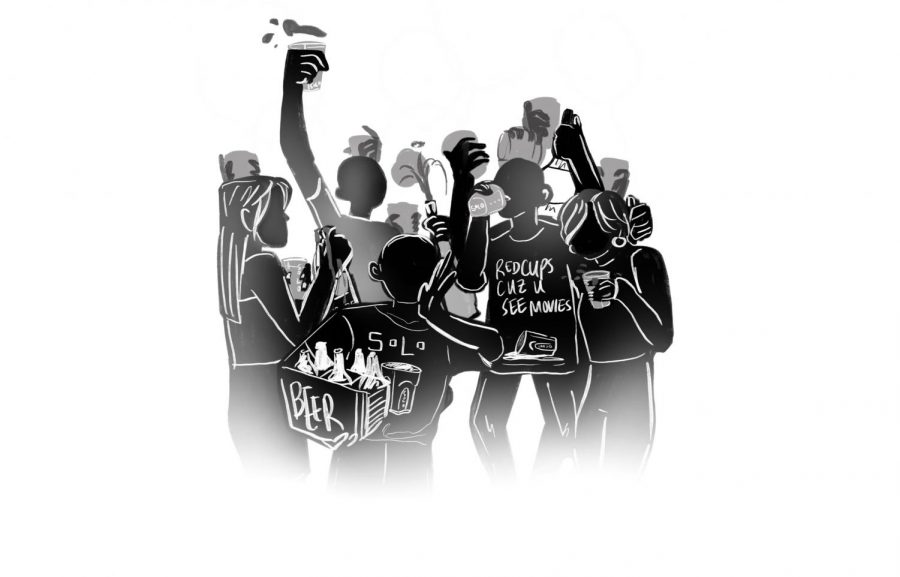Con – Should teenagers responsibly experiment with illicit substances to become aware of, familiar with limits?
graphic by Jocelyn Wang
Substance use—and illegal activity in general—has been made taboo by our generation and the ones preceding. This stigma causes people to think it is “cool” to use drugs or other substances. In addition to peer pressure, teenagers will indulge in these substances to impress others or “just for fun.” In reality, however, substance abuse promoted by party culture causes immense dangers, both in the short- and long-term effects.
When teenagers drink or do drugs, they often do so out of the aforementioned peer pressure or spontaneity. Thus, they are often uneducated on how to properly use the substances. Without proper knowledge on how to safely use whichever substance, it is extremely easy to mishandle it. This can lead to a variety of side effects and mental problems. One must know exactly how to properly use a drug in order to ensure their safety and to decrease the risks involved, as the possibilities and dangers that come from the misuse of drugs can be permanent and sometimes fatal. In high school, parties are one of the biggest contributors to peer pressure, which can cause teenagers to impulsively misuse these substances.
While education is extremely important when it comes to drug use, doing drugs at a young age is still very dangerous, even if an individual is educated on the matter. There are still negative short- and long-term effects these activities may have on physical and mental health. Brain development is at a critical stage throughout high school, so using substances during this phase can be extremely detrimental to lasting health. According to the Addiction Center’s article regarding teen substance abuse, drug use at a younger age impacts the brain’s ability to function in the short-term and prevents proper growth and development in the long-term. Other sources, such as the National Center for Biotechnology Information (NCBI), discuss how heavy drug use, especially at a young age, can cause permanent brain damage. Party culture poses the same physical and psychological threats to all teenagers, educated or uneducated. Either way, using illegal substances creates great risks that are not worth taking.
Using substances as a teenager has other negative consequences as well. For example, substance use can have a very detrimental effect on one’s memory, especially when it comes to alcohol, a substance that is known to “help people forget.” It is also extremely easy to become addicted to both alcohol and drugs during youth; those who start drinking earlier are significantly more likely to develop dependence than those who start later in life. Additionally, teenagers experimenting with substances are at a greater risk of causing car accidents, dying from unintentional injuries, killing others and dying by suicide than adults are in similar conditions, according to the NCBI. With risks of brain damage and more, teenagers should avoid risking their lifelong health for short-term benefits.
Adults, on the other hand, have mostly completed their growth, so substance use isn’t as harmful. In terms of drinking, adults can typically get away with fewer consequences, while teenagers easily experience negative effects.
Finally, one shouldn’t do anything illicit just to brag. This is another area where youth party culture comes into play. At parties, people tend to act thoughtlessly, turning something meaningless into a bad habit.
There are always better options than premature substance use; the slight benefits are greatly outweighed by potential dangers. Simply put, it’s not worth it.
Your donation will support the student journalists of Henry M. Gunn High School. Your contribution will allow us to purchase equipment and cover our annual website hosting costs.


